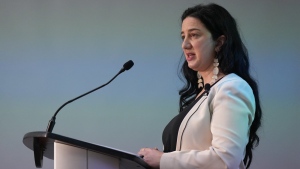A recent report released by the British Columbia government has shed light on the inequalities present in the province’s justice, health, and child welfare systems. The report, titled “Inequalities in BC: A Review of the Evidence,” was commissioned by the Ministry of Social Development and Poverty Reduction and conducted by the Canadian Centre for Policy Alternatives.
The report found that marginalized and vulnerable populations, including Indigenous peoples, people of color, and those living in poverty, face significant barriers and discrimination within these systems. This includes disparities in access to services, treatment, and outcomes.
In the justice system, the report found that Indigenous peoples are overrepresented in the criminal justice system, making up 30% of the prison population despite only accounting for 5% of the overall population in BC. This is a result of systemic racism and discrimination, as well as the intergenerational trauma caused by colonialism and residential schools.
In the health system, the report found that marginalized populations face barriers in accessing quality healthcare, resulting in poorer health outcomes. This is due to a lack of culturally appropriate services, language barriers, and discrimination from healthcare providers.
In the child welfare system, the report found that Indigenous children are disproportionately represented in the care system, with 60% of children in care being Indigenous, despite only making up 9% of the child population in BC. This is a result of ongoing colonial policies and the legacy of residential schools.
The report also highlighted the impact of poverty on these systems, with low-income individuals facing additional barriers and discrimination. This includes difficulties in accessing legal representation, healthcare, and adequate housing.
The findings of this report are concerning and highlight the urgent need for systemic change. The government has committed to addressing these inequalities and has already taken steps to address some of the issues raised in the report. This includes implementing the Declaration on the Rights of Indigenous Peoples Act and investing in culturally appropriate services.
However, more needs to be done to address the root causes of these inequalities and ensure that all British Columbians have equal access to justice, healthcare, and child welfare services. This includes addressing systemic racism and discrimination, as well as addressing poverty and its impacts.
The release of this report serves as a reminder that there is still much work to be done to create a more equitable and just society for all. It is crucial that the government and all stakeholders take action to address these inequalities and work towards a more inclusive and fair system for all British Columbians.




